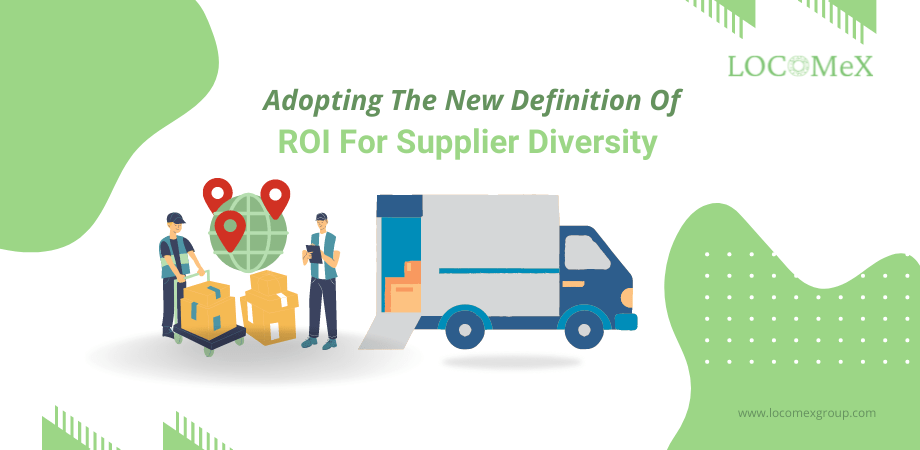There is no doubt that many companies are making changes to provide value to the customer. For many, this entails emphasizing diversity and inclusion (D&I) activities that result in substantive change.
Finding diversity inside a company is a terrific first step. And for it to truly matter, an organization must combine diversity with inclusion.
Diversity, Equity, and Inclusion (DEI) are being actively incorporated into the cultures and values of many businesses. Hence, it is crucial to ensure that many voices from the entire firm are heard and utilized to achieve a high-performing supply chain and diverse suppliers.
What Is Supplier Diversity?
Who Needs A Supplier Diversity Program?
Most businesses with federal, state, or other public-sector organizations are compelled by law to adhere to minimum supplier diversity quotas. So, creating or expanding a supplier diversity program will benefit most businesses concerned with corporate social responsibility (CSR).
This program will not only help DEI initiatives and raise ESG scores, but it may also improve performance in several other areas, including bottom-line earnings.
Additionally, as commitments to DEI and ESG strategies have become more common in the corporate world, any private company that prioritizes inclusivity and community participation can set up and actively manage strong supplier diversity programs. This comprises not-for-profit organizations and small and medium businesses in most economic sectors.

The Business Benefits Of Supplier Diversity
Return on investment, or ROI, is crucial for most corporate operations. The same holds for supplier diversity. Hence, companies that prioritize diverse suppliers have seen a wide range of benefits, such as:
- Improves suppliers’ competitive advantage
Adding diverse suppliers to the prospective sourcing pool can promote contract competition and improve quality and cost reduction. The supply chain may become more flexible and resilient with more sourcing supplies, which is crucial in difficult times.
For instance, a few minority-owned businesses in Georgia that had previously created and manufactured hair products could quickly switch to creating hand sanitizers and all-purpose cleaners at the height of the pandemic.
- Boost innovations
Instead of exploring new markets, sticking with the same vendors or traditional suppliers might stifle creativity, which is bad for everyone concerned. Also, the organization won’t benefit from the depth and breadth of innovation that naturally comes from having a diverse supply base.
So, by adding diverse suppliers to its supply base, a business can access new mindsets, perspectives, and ideas. According to a Boston Consulting Group study, businesses with more diverse management teams generate 19% more revenue due to innovation. Therefore, as your supplier relationships develop, you can take advantage of this innovation and benefit in several areas, from cost savings to talent management to reaching supplier diversity goals.
The LOCOMeX’s supplier diversity data analytic solutions use an AI data-driven methodology to help the industry achieve its supplier diversity aims and goals.
- Provides multiple procurement channels for goods and services
Many channels enable an organization to compare potential suppliers’ product ranges, locations, and pricing to determine the most suitable.
Also, for every dollar invested in operations and procurement, a formal supplier diversity program guarantees a high ROI of >3.5 times. This business practice enables the organization, the buyer, to promote and include many new suppliers, thereby reducing the product/service cost.
- Provides positive social and economic impact
Diverse suppliers, which are frequently smaller companies, significantly affect the communities in which they operate.
According to the National Minority Supplier Diversity Council, a minority business create or maintain 2.2 million employment, contribute $400 billion to the economy annually, and bring in $49 billion in taxes for the local, state, and federal governments.
Thus, engaging with different suppliers enables a company to focus on economic growth, job creation, inclusion, and a beneficial economic impact.
Embracing the New Meaning Of ROI for Supplier Diversity
Many organizations are gradually moving away from the need-based paradigm toward the value-based model. The advantages include a strong ROI (>3.5x), expanded network synergies, cost reduction, and tax incentive eligibility.
As a result of the model’s success, large corporations increasingly create formal programs, set targets, put them into action, and monitor progress. Businesses anticipate that by 2025, their D&I spend target will increase by more than 50%, with an average annual spend target of about 13% set aside for suppliers from various under-represented/minority-owned diversity groups.
This suggests that greater supply chain alignment around the value-based strategy will inevitably produce significant returns over the long run. And hence, for supplier diversity, the ROI goes beyond Return on Investment to give your company a new ROI known as Return on Inclusion.




